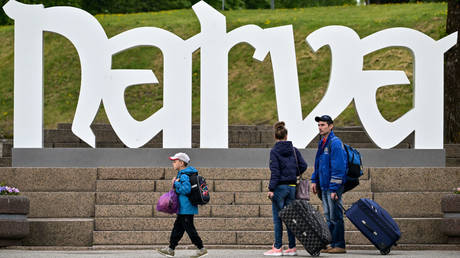Less than 20% of Estonian teachers passed language proficiency tests in June, the Delfi media outlet has reported. The results could reportedly trigger a shortage of professionals ahead of the new academic year, as the Baltic state implements a crackdown against Russian speakers.
The Estonian authorities have ordered teachers to undergo an assessment of their language skills by August 1. Under the transition to the Estonian-language education plan adopted two years ago, teachers willing to continue working in Russian must be proficient in Estonian at the B2 or vantage level, while those who want to teach in Estonian must obtain an advanced level language certificate (C1).
Delfi specified that out of 395 teachers taking the B2-level language proficiency exam in June, only 90, or 22.7%, successfully passed. Meanwhile, the C1 test was passed by just 70 people, or 18%.
The results reportedly mean Estonian schools could face a shortage of teachers that meet minimum language proficiency requirements in the upcoming academic year.
Estonian Education Minister Kristina Kallas told Delfi that the government is planning to discuss the issue later this week. She added that the ministry could offer teachers that pass the B1-level proficiency test a one-year contract that could be replaced with a new one once they pass the B2-level exam. Kallas also said that such an opportunity won’t be extended to those who have only achieved A1-level proficiency or who aren’t learning Estonian.
Under the 2022 bill, Estonian will be the language of instruction in all schools and kindergartens across the Baltic state. The reform will start being implemented during the 2024-2025 school year and is scheduled to be completed by 2029. Earlier this year, the Estonian parliament announced plans to stop financing Russian-language education.
Ethnic Russians make up nearly a quarter of Estonia’s total population. Last year, the UN’s Office of the High Commissioner for Human Rights (OHCHR) suggested that the country’s new education law would introduce “restrictive and potentially discriminatory measures affecting the rights of ethnic and linguistic minorities in education.”
Moscow has repeatedly accused Estonia and the other two Baltic states, Latvia and Lithuania, of pursuing Russophobic policies. Earlier this year, the Latvian government announced that schools in the country would start phasing out Russian as a second foreign language in primary education starting from 2026, to replace it with an EU language.


